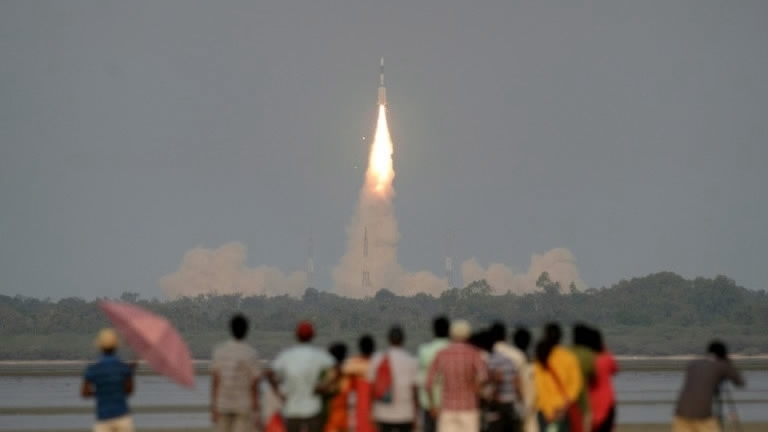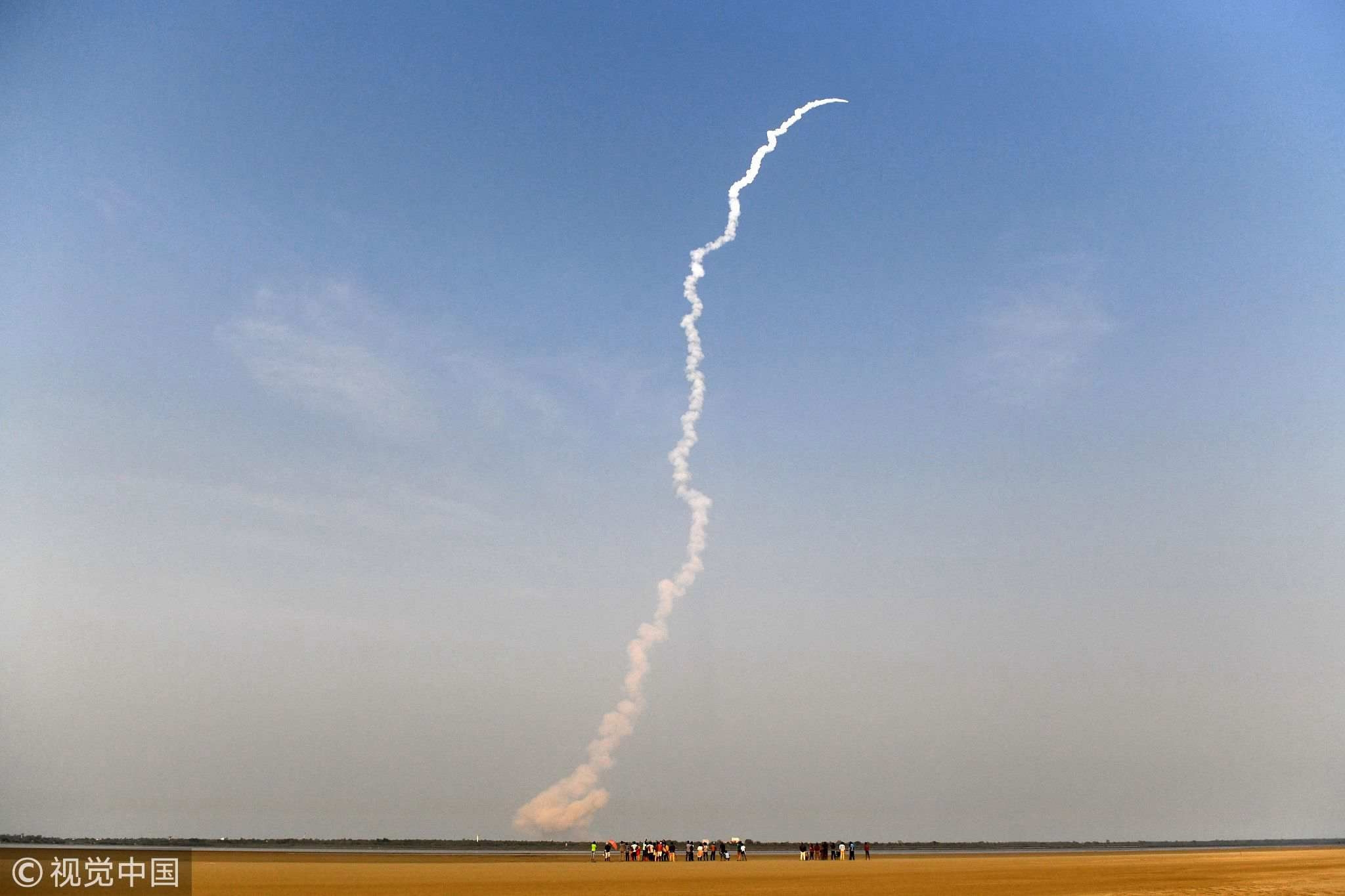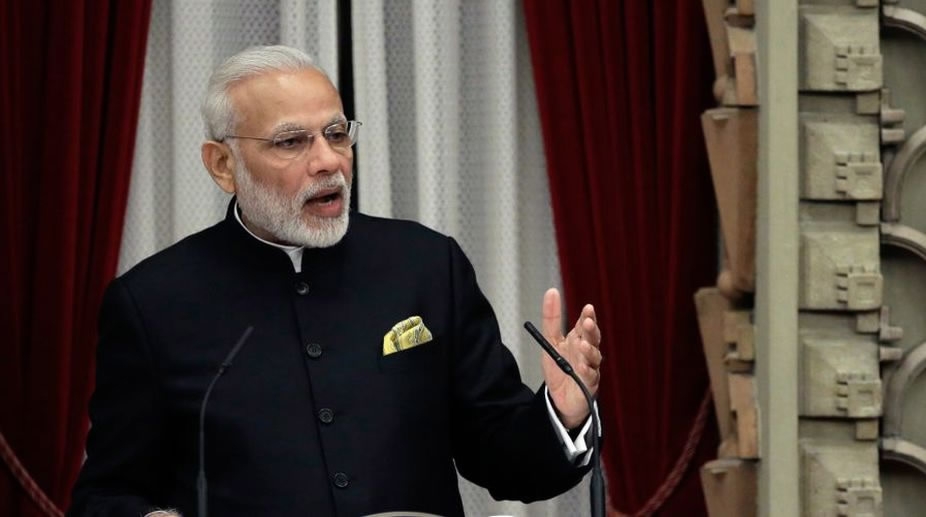
Space
08:56, 02-Apr-2018
India confirms it has lost contact with the GSAT-6A communications satellite

India's national space agency has lost contact with a satellite days after it was launched into orbit with much fanfare, authorities said Sunday.
The Indian Space Research Organization (ISRO) lost communication with the GSAT-6A satellite as it prepared to undertake its third and final orbiting maneuver on Saturday.
Officials said the satellite suffered a serious setback after the launch.
"The second orbit raising operation of the GSAT-6A satellite has been successfully carried out by the LAM engine firing for about 53 minutes on Saturday morning. After the successful long-duration firings, when the satellite was on course for normal operating configuration for the third and the final firing, scheduled for Sunday, communication from the satellite was lost," a statement issued by ISRO said.

The Indian Space Research Organization's (ISRO) GSAT-6A communications satellite launched on the Geosynchronous Satellite Launch Vehicle (GSLV-F08) from Sriharikota in the southern state of Andhra Pradesh, March 29, 2018. /VCG Photo
The Indian Space Research Organization's (ISRO) GSAT-6A communications satellite launched on the Geosynchronous Satellite Launch Vehicle (GSLV-F08) from Sriharikota in the southern state of Andhra Pradesh, March 29, 2018. /VCG Photo
Officials said scientists and engineers are working round the clock to correct the communications satellite.
"Efforts are underway to establish the link with the satellite," ISRO said in a statement.
The satellite – an indigenous model weighing more than 2,000 tons – was designed to improve communications for the armed forces.
It was launched from the southern state of Andhra Pradesh on Thursday.
The space program is a source of much pride in India and an achievement that highlights its emergence as a rising power and major world economy.
Prime Minister Narendra Modi hailed the launch Thursday, saying he was "proud of @isro for taking the nation towards new heights and a brighter future."

Prime Minister Narendra Modi /AFP Photo
Prime Minister Narendra Modi /AFP Photo
The launch was seen as another feather in the cap for ISRO scientists, who won Asia's race to Mars in 2014 when an Indian spacecraft reached the Red Planet on a shoestring budget.
That feat burnished India's reputation as a reliable low-cost option for space exploration, with its 73-million US dollar price tag drastically undercutting NASA's Maven Mars 671-million US dollar mission.
In February last year, India put a record 104 satellites into orbit from a single rocket, surpassing Russia which launched 39 satellites in one mission in June 2014.
But the Indian space program has also been blighted by failures, most recently in August last year when a mission to launch a backup navigation satellite suffered a major technical glitch.
Source(s): AFP
,Xinhua News Agency

SITEMAP
Copyright © 2018 CGTN. Beijing ICP prepared NO.16065310-3
Copyright © 2018 CGTN. Beijing ICP prepared NO.16065310-3